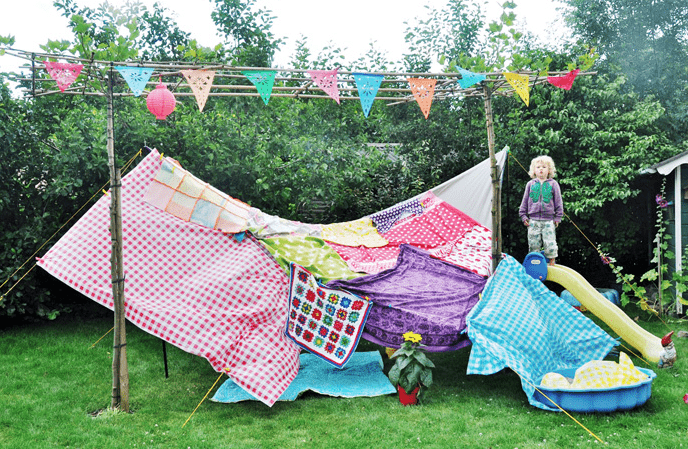It brings me immense pleasure to walk among the finely manicured blades of grass adorning my front yard. I spend time on my knees pulling out weeds that choke the good seed. I can talk for hours with fellow lawn-keepers about the finer points of turf improvement.
My wife had a different perspective. Now, don’t misunderstand me. She liked a nice looking yard. She even complimented the fruit of my labors. However, she reminded me, on more than one occasion, that there are more important things in life than having the best looking lawn on the street.
During their childhood our daughters enjoyed building what I called tent cities. They gathered all the bed sheets and blankets we would let them use and draped them over chairs, crawling in and out as they played their imaginative games.
On one nice summer day, they were building one of those tent cities on the front lawn of our house. I stood at the door informing my wife of all the reasons why this was not a good idea. The grass would suffocate and turn brown. There would be holes all over the front yard. My fellow lawn-keepers would remind me that this activity was not good for a healthy lawn.
“Why couldn’t they build this thing in the back yard?” I said. “I don’t spend as much time working on it.”
Cindy looked me squarely in the eyes and emblazoned these words in my memory forever: “Willie, we’re not raising a lawn. We’re raising a family.”
We’re not raising a lawn. We’re raising a family.
Those words stung as I reflected on my priorities as a father. Was I as intentional in raising a family as I was in raising a lawn? Or was I simply hoping that everything would turn out right?
I have learned that parents have two choices in raising a family. You can be intentional or you can have a what-will-be-will-be attitude. Intentional parents actively determine the course of their family rather than being moved only by the popular winds of current culture.
Let me suggest several practical steps you can take to be an intentional parent:
- Plan to have frequent, in-depth conversations with your children. Instead of lamenting about the tent city on my lawn, I could have been playing with them and having conversations about life. I’m glad to say that I learned how to initiate those conversations with my daughters. Often, all I did was pick up on something they said and jumped in with a non-judgmental question that helped me hear more of their thinking. At other times they asked me the tough questions.
- Decide to be involved in their education. Kids who do well in their education have parents who want to help them. You not only help them excel academically, but your involvement helps them avoid risky behaviors.
- Pray daily for your children and for godly wisdom in raising them. I cannot over emphasize the importance of this suggestion. The psalmist’s words are undeniably true: “Unless the Lord builds the house, it’s builders labor in vain” (Psalm 127:1).
- Set standards for appropriate behavior and discipline when rules are violated. Children do not want their parents to be their best friends. They want us to be their parents and that means we must be ready to make the tough calls about their behavior, their music, their clothing, and their friends.
- Plan to monitor where your children are going and know who their friends are.
- Monitor the activities in which family members are active. Do not over-schedule.
- Teach and model for your children how to love and serve God. If you want children who pray, who read the Bible, who go to church, and who have a Biblical value system, you must lead the way.
© 2019 William Batson
I would love to hear from you! What are your thoughts about this topic? Please leave your comment below.


Leave A Comment